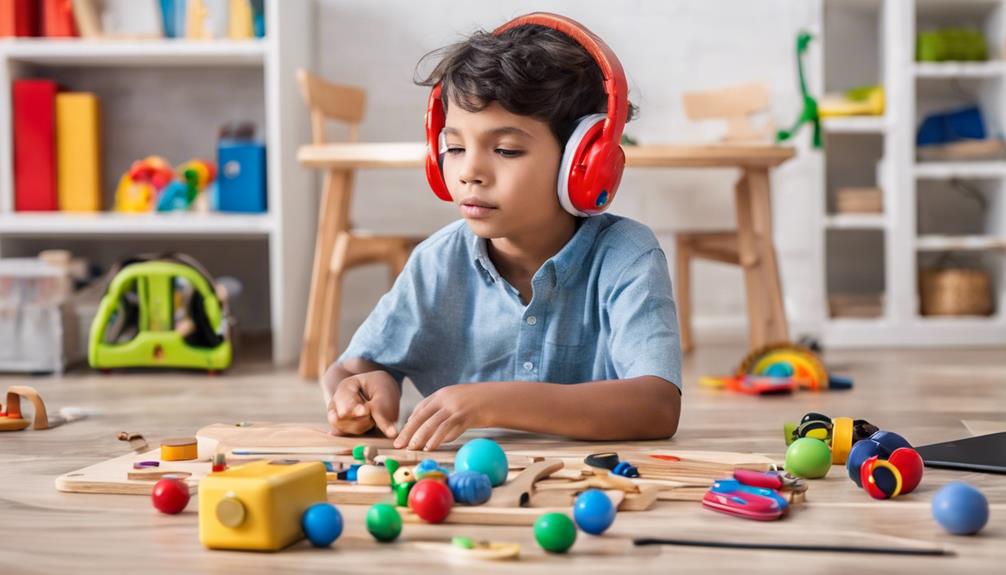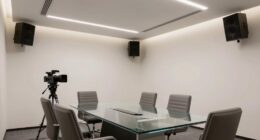Have you ever wondered how therapy materials can truly impact auditory processing skills?
The 'Enhancing Auditory Processing: Therapy Materials Guide' delves into this important area with a focus on enhancing auditory discrimination, memory, and closure.
But what sets these materials apart and how do they engage individuals in mystery-solving tasks that could be the key to unlocking improved auditory skills?
Let's explore the depth of these strategies and activities that aim to support individuals with auditory processing deficits.
Key Takeaways
- Structured listening tasks and auditory memory games improve comprehension and recall.
- Multi-sensory tools and materials enhance auditory discrimination and processing skills.
- Nature-based activities and sound discrimination tasks aid in auditory attention and memory development.
- Assistive technology like noise-cancelling headphones can reduce auditory distractions for individuals with Auditory Processing Disorder.
Auditory Processing System Overview
In our auditory processing system overview, we analyze how receptors in the inner ear receive sound wave vibrations, crucially transmitting information on sound frequency, timing, and intensity. The intricate process of auditory processing skills can be disrupted by auditory processing disorders, leading to challenges in sensory responsiveness that affect motor skills and learning.
Dysfunction in this system can manifest as over- or under-responsiveness to sensory input, impacting an individual's ability to effectively process and interpret auditory information. Integration with somatosensory input plays a vital role in sound orientation, highlighting the interconnected nature of sensory processing.
Hyper-responsiveness can result in difficulties in communication and literacy, emphasizing the need for interventions that address specific auditory sensitivities. Individuals with auditory processing disorders may benefit from engaging in multi-sensory activities that actively involve different senses to support auditory attention and processing of specific sounds.
Strategies such as reducing background noise and incorporating tactile elements can help individuals with auditory sensitivities navigate challenges related to auditory processing, fostering a more enriched sensory experience.
Effective Auditory Processing Techniques

Exploring effective auditory processing techniques involves implementing targeted strategies to enhance discrimination, analysis, closure, blending, and memory skills, supported by research findings. When considering auditory processing activities to improve auditory skills, the following techniques have shown promising results:
- Structured Listening Tasks: Engage individuals in activities that require focused listening and comprehension, such as following multi-step directions or identifying specific sounds within a complex auditory environment.
- Auditory Memory Games: Utilize games like memory matching with auditory components to enhance recall and retention of auditory information.
- Phonemic Awareness Exercises: Incorporate exercises that target phoneme manipulation and blending to improve sound discrimination and blending skills.
- Sound Localization Tasks: Implement activities that challenge individuals to locate and identify the source of sounds in different environments to enhance auditory processing abilities.
Auditory Discrimination Games List
Engage individuals in auditory discrimination games to enhance attention, memory, and direction-following skills crucial for auditory processing improvement.
Games such as Red Light, Green Light, and Simon Says have been shown to improve auditory attention, memory, and the ability to follow directions effectively.
Additionally, activities like Freeze Dance and Hokey Pokey not only bring joy but also target auditory discrimination and processing skills in an engaging manner.
These games aid children in recognizing similarities and differences in sounds, words, and speech, contributing to their auditory skill development.
Incorporating games like Musical Charades and the I Went to a Picnic Game can further enhance auditory discrimination, memory, and listening skills.
By utilizing hands-on strategies and visual aids within these games, therapists and educators can create a stimulating environment that supports auditory processing improvement.
These auditory discrimination games offer a dynamic and interactive way to boost auditory skills while fostering a sense of enjoyment and participation.
Therapy Materials for Auditory Processing
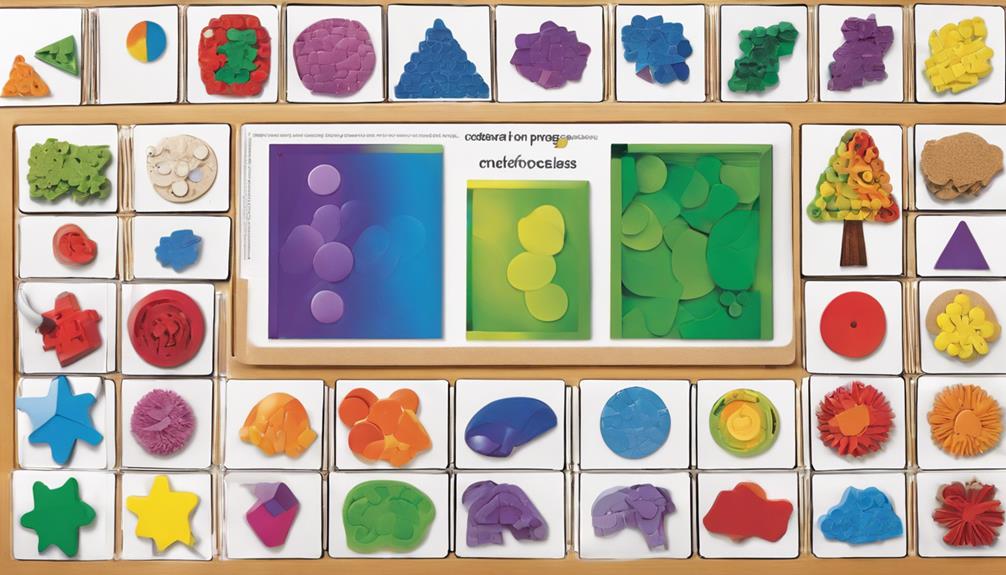
When considering therapy materials for auditory processing, it's crucial to focus on key tools and effective listening strategies. These resources are designed to target specific areas such as discrimination, analysis, closure, blending, and memory.
Key Therapy Tools
Therapy materials for auditory processing encompass a range of games, activities, and kits specifically designed to enhance auditory discrimination, memory, and analysis skills in individuals with auditory processing deficits. These tools offer a structured approach to target specific auditory processing deficits, helping individuals improve their auditory memory and processing abilities. Key therapy tools provide various auditory stimuli and challenges to strengthen listening and comprehension skills. They incorporate multi-sensory elements, visual aids, and hands-on strategies to engage individuals actively in skill-building. By utilizing these materials, individuals can solve auditory mysteries, complete tasks, and enhance their auditory processing skills in an enjoyable and interactive manner.
- Enhancing auditory discrimination and memory skills
- Providing structured approaches for skill development
- Engaging individuals in active learning through multi-sensory elements
- Supporting individuals in a fun and interactive way
Effective Listening Strategies
To further advance auditory processing skills, the focus shifts to implementing effective listening strategies through specialized therapy materials. These materials target enhancing listening skills by addressing auditory processing problems such as discrimination, memory, and processing deficits.
By engaging in activities designed within these therapy materials, individuals with auditory processing disorders can improve their ability to interpret and understand auditory information more effectively. The strategies embedded in these materials offer structured approaches that guide individuals in developing essential auditory processing skills.
Central Auditory Processing Disorder Insights
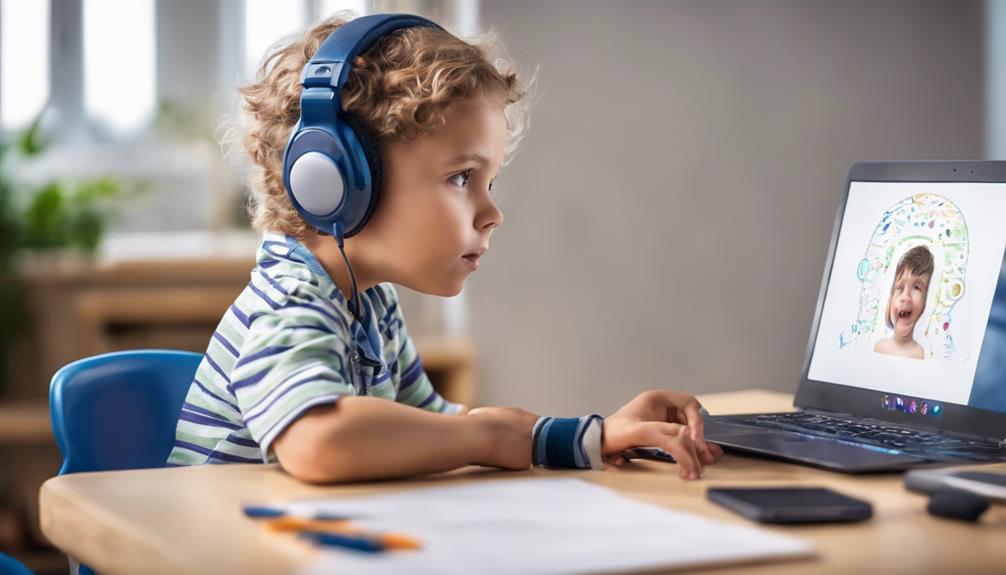
Central Auditory Processing Disorder (CAPD) manifests as a challenge in comprehending and retaining auditory information due to underlying brain differences. Children with CAPD struggle with decoding and remembering oral information due to these variations. To serve those facing Central Auditory Processing Disorder, we must understand the following insights:
- Impact of CAPD: CAPD significantly affects the ability to understand and recall information heard, posing challenges in educational and social settings.
- Struggles with Decoding: Children with CAPD face difficulties in decoding and remembering oral information, which can impact their academic performance and interpersonal relationships.
- Environmental Changes: Alterations in the environment and strategies such as emphasizing key words can assist children with CAPD in improving their listening and learning skills.
- Importance of Early Intervention: Early identification and intervention, including professional support like speech-language therapy, are crucial for mitigating the challenges associated with Central Auditory Processing Disorder.
Understanding these insights is vital in providing effective support and interventions for individuals with CAPD.
Real-Life Auditory Sensory Challenges

Individuals experiencing real-life auditory sensory challenges may encounter difficulties in distinguishing speech amidst noisy environments. For instance, a child feels overwhelmed in a classroom where multiple conversations are happening simultaneously. This can lead to an inability to focus on the teacher's instructions and participate in class activities effectively. To better understand the impact of auditory sensory challenges, consider the following scenarios:
| Auditory Sensory Challenge Scenarios | Description | Solutions |
|---|---|---|
| Crowded Mall | Child feels anxious and overwhelmed | Noise-canceling headphones |
| Loud Playground | Difficulty locating friends | Visual cues and gestures |
| Busy Restaurant | Struggles to follow conversations | Seating in quieter area |
| Sports Event | Overstimulated by cheering | Earplugs or earmuffs |
| Noisy Classroom | Misses key instructions | Preferential seating near the teacher |
Understanding these real-life challenges can help in designing interventions and accommodations that cater to the specific auditory sensory needs of individuals, especially children.
Phonemic Awareness Learning Activities
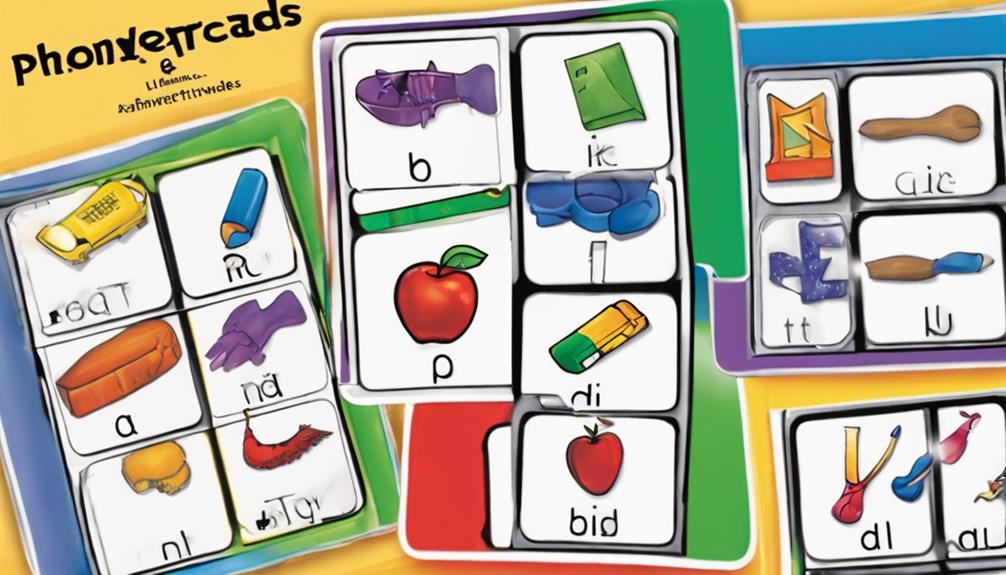
Phonemic awareness learning activities encompass tasks that involve recognizing and manipulating individual sounds within words.
These activities are designed to enhance auditory processing skills in children with various learning difficulties.
Engaging in exercises like sound blending, rhyming word games, and sound segmenting can be beneficial for improving phonemic awareness and overall auditory processing abilities.
Sound Blending Exercises
Utilizing structured sound blending exercises during phonemic awareness learning activities is crucial for enhancing children's ability to hear, identify, and combine individual sounds in words, ultimately improving their reading and spelling skills. Sound blending tasks improve auditory processing abilities, aiding in the accurate manipulation of sounds. Children with Auditory Processing Disorder (APD) can benefit from these exercises by enhancing their decoding and language comprehension skills. Sound blending activities involve blending initial, medial, and final sounds in words to reinforce discrimination and blending skills.
To support this, consider the following emotional evocations:
- Confidence boost in children struggling with reading.
- Empowerment through improved language skills.
- Joy in witnessing children's progress.
- Fulfillment in helping children overcome auditory challenges.
Rhyming Word Games
Engaging children in rhyming word games is an essential strategy for developing their phonemic awareness skills effectively. These games assist children, including those with auditory processing disorder (APD), in identifying and manipulating sounds within words.
By focusing on sound similarities and differences, rhyming word activities improve auditory processing abilities. This enhancement in auditory processing not only aids in language and literacy skill development but also benefits children with APD.
Through rhyming word games, children can practice discerning subtle sound variations, ultimately strengthening their overall phonemic awareness. These activities provide a fun and interactive way for children to engage with language, promoting a deeper understanding of sound structures within words.
Segmenting Sound Practice
Exploring the breakdown of words into individual sounds is a crucial practice in honing children's phonemic awareness skills, facilitating the development of their auditory processing abilities. When engaging in segmenting sound practice, consider the following:
- Importance: Segmenting sound practice is essential for developing phonemic awareness skills in children.
- Process: It involves breaking down words into individual sounds to improve auditory processing abilities.
- Activities: Phonemic awareness activities help children identify, isolate, and manipulate sounds in spoken language.
- Benefits: These activities lay the foundation for reading and language development, enhancing literacy skills and overall auditory processing proficiency.
Engaging children in phonemic awareness learning activities not only enhances their auditory processing skills but also sets the stage for improved language and reading capabilities.
Nature-Based Auditory Processing Exercises

In natural environments such as parks, lakes, or woods, auditory processing skills can be enhanced through exposure to various sounds. Listening to natural sounds, like birds chirping, leaves rustling, or water flowing, in these serene settings can help individuals sharpen their auditory processing abilities. Closing one's eyes while focusing on these sounds can aid in identifying and distinguishing between different environmental sounds, thereby improving auditory processing skills. Additionally, imitating the natural sounds heard in the environment can further enhance auditory processing capabilities.
Nature-based auditory processing exercises offer a calming and sensory-rich experience for skill development. Engaging with the diverse array of sounds present in natural settings provides a unique and beneficial way to boost auditory processing skills. By immersing oneself in the sounds of nature, individuals can't only improve their auditory processing abilities but also enjoy the therapeutic benefits of connecting with the natural world.
Sound Discrimination Activities
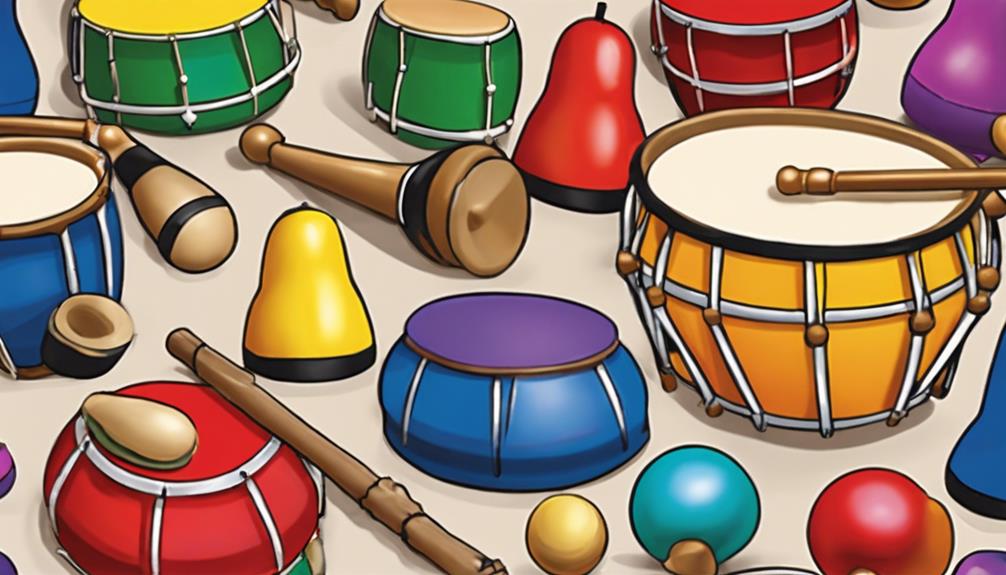
Nature-based auditory processing exercises focusing on sound discrimination activities aim to enhance individuals' ability to differentiate between various sounds, thereby improving auditory processing skills through the recognition of sound nuances.
Engaging in activities that require discriminating between loud and soft sounds, high and low-pitch sounds, and near and far sounds can significantly benefit individuals with auditory processing disorder (APD). These tasks not only help in sharpening auditory information processing but also aid in enhancing auditory attention and memory.
Auditory Attending CAPD Exercises
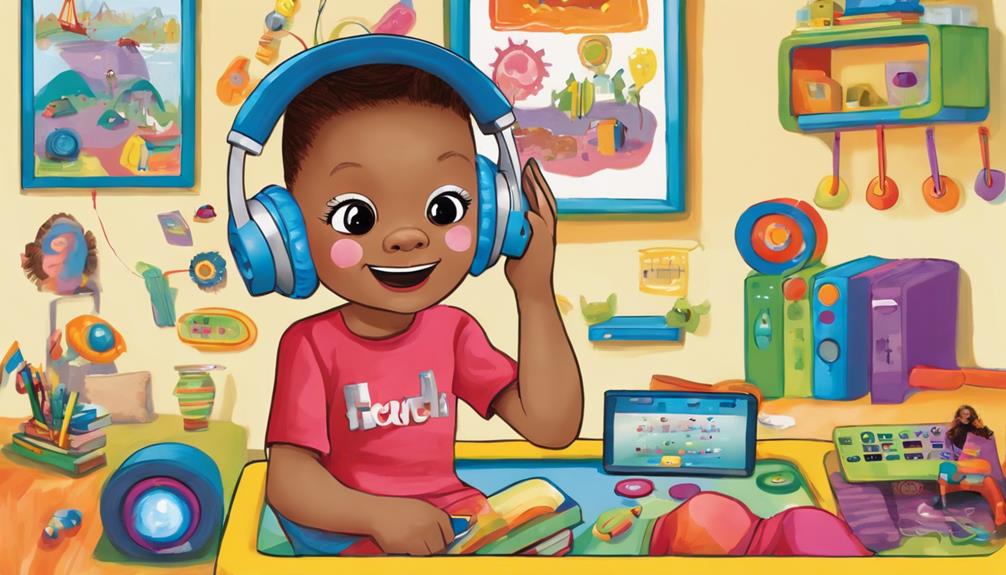
To enhance auditory attending skills in individuals with Central Auditory Processing Disorder (CAPD), engaging in targeted exercises is crucial for improving their ability to focus on and process auditory information effectively. Auditory attending exercises play a vital role in helping children with APD strengthen their attention to auditory input, leading to enhanced listening comprehension and communication skills. Activities such as clapping, stomping, and playing drums for sound patterns can be beneficial in developing and refining auditory attending skills. These exercises aim to build essential foundations for improved auditory processing, ultimately contributing to better overall communication success in individuals with CAPD.
| Auditory Attending CAPD Exercises | Description |
|---|---|
| Clapping | Rhythmic exercises to enhance focus |
| Stomping | Physical activities for sound patterns |
| Drum playing | Engaging in musical patterns |
| Listening games | Interactive tasks for auditory attention |
| Following instructions | Enhancing ability to process commands |
Phoneme Awareness APD Activities

Building on the foundation laid by auditory attending exercises, phoneme awareness activities offer targeted interventions to enhance sound discrimination skills in individuals with Central Auditory Processing Disorder (CAPD). Phonemic awareness activities focus on honing the ability to hear, identify, and manipulate individual sounds within words. For children with APD, these activities are crucial as they may struggle with phonemic awareness, impacting their comprehension and processing of spoken language. By engaging in phoneme awareness activities, individuals with APD can learn to notice subtle sound differences, ultimately improving their auditory processing abilities. Furthermore, these activities can lead to enhanced language and literacy skills in children with APD.
Emotions Evoked:
- Hope: Providing targeted interventions can offer hope for individuals with APD to improve their sound discrimination skills.
- Empathy: Understanding the struggles individuals with APD face in processing spoken language can evoke empathy towards their challenges.
- Determination: The focus on enhancing auditory processing abilities can instill a sense of determination in supporting individuals with APD.
- Joy: Witnessing improvements in language and literacy skills can bring joy to both individuals with APD and those supporting them.
Support for Kids With Auditory Disorders

We'll now address the different types of auditory disorders, therapeutic strategies, and classroom accommodations to support children with auditory processing challenges.
Understanding the specific type of auditory disorder a child has is crucial in tailoring interventions effectively. Therapeutic approaches such as auditory training and speech-language therapy are commonly used to improve auditory processing skills.
Implementing classroom accommodations like preferential seating or the use of FM systems can enhance a child's learning environment and support their auditory needs.
Auditory Disorder Types
Children with auditory disorders may exhibit difficulties in various aspects of auditory processing, such as recognizing speech in noisy settings and discerning subtle changes in tone. When considering auditory disorder types like Central Auditory Processing Disorder (CAPD) and Auditory Processing Disorder (APD), it's essential to understand the challenges they face.
Here are key points to consider:
- Kids with auditory disorders may struggle with hearing speech in noisy environments.
- Following directions can be particularly challenging for children with auditory disorders.
- Detecting subtle changes in tone may present significant difficulties.
- Discriminating between different sounds can be a considerable hurdle for those with auditory disorders.
Understanding these nuances is crucial in providing effective support and interventions for children facing auditory processing challenges.
Therapeutic Approaches
Therapeutic interventions for children with auditory disorders aim to enhance sound discrimination, memory, and processing abilities to improve their auditory processing skills. Professional interventions like speech-language therapy and educational therapy play a crucial role in developing these skills. Additionally, assistive strategies and technology solutions, such as noise-cancelling headphones and teacher microphones, can create more conducive learning environments for children with auditory disorders. Educational therapists specialize in tailoring strategies to address specific weaknesses and help children compensate for their auditory processing difficulties. Early intervention and support are paramount for children facing challenges in their auditory system to enhance their listening and learning skills.
| Intervention | Description | Benefits |
|---|---|---|
| Speech-language therapy | Targets language processing and communication skills through specialized exercises and activities. | Improves communication abilities. |
| Educational therapy | Focuses on academic skills and learning strategies to support children with auditory processing challenges. | Enhances academic performance. |
| Assistive technology | Includes tools like noise-cancelling headphones and teacher microphones to optimize the learning environment. | Reduces auditory distractions. |
Classroom Accommodations
When accommodating children with auditory disorders in the classroom, preferential seating near the teacher can significantly improve their listening experience. To further enhance their learning environment, consider the following strategies:
- Utilize visual aids such as written instructions and diagrams to reinforce auditory information.
- Provide a quiet space for tasks to reduce background noise and improve processing.
- Implement FM systems or teacher microphones to enhance speech clarity.
- Establish consistent routines and clear communication strategies to support understanding of auditory information.
These accommodations can help create a more inclusive and supportive classroom setting for students with auditory processing challenges, ultimately aiding in their academic success.
Frequently Asked Questions
How Can I Improve My Auditory Processing Skills?
We can improve auditory processing skills by engaging in activities like Simon Says and Freeze Dance.
DIY Rhythm Sticks and Fall Leaf activities are also beneficial.
Listening to sounds in quiet places and judging near or far sounds with eyes closed can enhance skills.
Consider using noise-cancelling headphones and teacher microphones as assistive strategies.
These methods can help enhance auditory processing abilities effectively.
What Are the Tools to Help Auditory Processing Disorder?
We use games targeting auditory discrimination, analysis, closure, blending, and memory skills to help with auditory processing disorder. These tools offer varying difficulty levels for effective therapy and include activities like mystery-solving tasks.
With 210 cards arranged in hierarchies of difficulty, active participation is encouraged for skill development. Using these tools can enhance auditory processing skills, critical thinking, and problem-solving abilities in individuals with auditory processing disorder.
How Can I Improve My Hearing Processing?
Improving hearing processing is like tuning a radio to pick up clearer signals. Engage in auditory discrimination games, DIY activities, and nature-based experiences.
Participate in near or far sound judgments with closed eyes. Join activities involving sound patterns like clapping for better rhythmic skills. These practices enhance auditory processing abilities and focus.
Embrace these strategies for a more attuned auditory experience.
How Do You Teach Auditory Processing?
When teaching auditory processing, we focus on engaging activities like Red Light, Green Light and Simon Says, to enhance skills. Activities such as Fall Leaf and Musical Bell are utilized to improve auditory discrimination.
Listening to nature sounds in quiet settings and judging near or far sounds can enhance auditory abilities. Phonemic awareness tasks, like identifying sounds in words, are also beneficial.
These activities aim to strengthen auditory processing skills through interactive and engaging methods.
Conclusion
In conclusion, the 'Enhancing Auditory Processing: Therapy Materials Guide' offers a comprehensive and engaging approach to improving auditory skills in individuals with processing deficits. Through a range of activities and games, this guide provides valuable tools for occupational therapy treatment, promoting skill development and problem-solving.
By incorporating nature-based exercises and discrimination games, this resource supports individuals in enhancing their auditory discrimination, analysis, memory, and closure abilities. The materials are evidence-based and effective in addressing auditory processing challenges.



